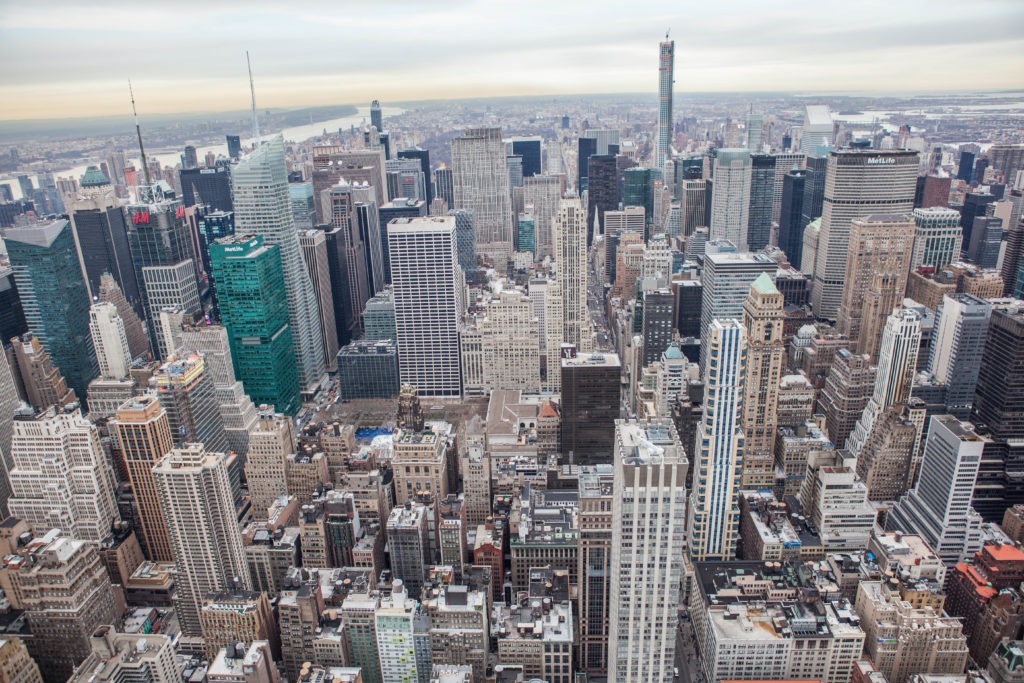
This image was originally posted to Flickr by Anthony Quintano at http://flickr.com/photos/22882274@N04/16335452951.
New York and Puerto Rico have already taken big steps
By Lauren Rudick
Reportedly, legal sales of cannabis in the United States will reach $6.8 billion in 2016, with that figure expected to climb to more than $21 billion by the end of the decade.
These numbers optimistically assume successful legalization efforts in the East, including the implementation of programs in states where full legalization is predicted (Maine, Massachusetts and Vermont), the expansion of restrictive medical programs (New York and New Jersey), and the establishment of entirely new programs (Pennsylvania, Ohio and Puerto Rico).
As positive data reflects the growth of cannabis companies and states collect impressive tax revenues, the pressure to satisfy political constituents and create safe, legal access to cannabis is mounting.
There have already been some big moves this year in the East, including progress in New York and the launch of Puerto Rico’s medical cannabis program.
New York
When asked how big New York’s legal cannabis program can and will be, state Sen. Diane Savino proudly proclaimed, “New York does everything big.”
But “big” is not yet an adjective that can be used to describe the state’s current program, with only the direst medical conditions qualifying, a maximum of five licensed cultivators, mandatory vertical integration, 20 total dispensaries, a maximum of five strains per licensee, unprecedented caps on THC levels, and the prohibition of smoking, edibles and whole plant formulas. Patients and investors in New York can only look at the long-term approach.
According to Julie Netherland of the Drug Policy Alliance, sales have begun, yet New York patients are plagued by issues of affordability. The least expensive products are more than $100 and monthly costs range from $300 to $2,000 per month out of pocket.
The Compassionate Care Act permits licensees to provide income-based discounts to patients who qualify, and several dispensaries have offered discounts to low-income patients. Nonetheless, an increasing number of would-be patients are opting out of the program, citing pricing concerns. Patient advocates and investors are working toward a legislative fix, following unsuccessful efforts to persuade Governor Andrew Cuomo to change restrictions affecting the price of medical cannabis.
Meanwhile, patients and investors in New York may be encouraged by movement within the Shinnecock Indian Nation, one of eight federally recognized tribal nations in New York. In early February, the Shinnecock Nation voted to join approximately 15 other tribal nations that are exploring the business of medical cannabis across the United States. Reportedly, the Shinnecock Nation, in consultation with the U.S. Department of Justice and the state of New York, plans to erect a 32,000-square-foot cultivation facility and dispensary in Southampton. That the Shinnecock Nation did not participate in New York’s licensing program should keep startup costs down, allowing them to provide cannabis at a lower cost than New York’s existing licensees. The tribe has not entered into a compact with the state, as was done in Washington, so details concerning the extent to which the Shinnecock Nation may deviate from New York’s regulatory scheme remain unknown.
Puerto Rico
Medical cannabis was effectively legalized in Puerto Rico via executive order in May 2015 — an unprecedented mechanism. The U.S. territory of Puerto Rico is self-governing, but not completely sovereign, and faces unique challenges and opportunities to those of various tribal nations. However, in January, the Puerto Rico Health Department adopted the first regulations allowing cultivation, manufacturing and distribution, which will be governed jointly by the Health and Agriculture departments, the University of Puerto Rico and the local police.
In some ways, Puerto Rico seems to have taken a page from New York’s playbook. Similar to New York, cannabis will be available in limited forms and only to those suffering from the most serious medical conditions. Chemical products, smoking and home cultivation are all prohibited.
Testing by independent laboratories and extensive security measures are required. Early reports predict low patient numbers and increasing concern that a slow start will attract “undesirable” investors, such as foreign pharmacies that are already established and in an economic position to garner favor with local government.
Nonetheless, the majority of Puerto Ricans believe that legal cannabis may be the ticket to prevent financial ruin and a public health care crisis. The U.S. territory is currently more than $70 billion in debt. The current regulations have yet to be finalized and may be rewritten by the next governor. Gaby Pagán, activist and owner of San Juan’s popular Monticello Smoke Shop, is optimistic that tight regulations will inspire educated and sustainable decision-making, resulting in organic, non-toxic medicine.
Citing Puerto Rico’s proximity to the equator, 12-hour daylight cycle and available tax incentives, Pagán says “the cannabis industry looks favorable for external funding without compromising the integrity of local commerce.”
Lauren Rudick represents investors and startup organizations in all aspects of business and intellectual property law, specializing in cannabis, media and technology. Her law firm, Hiller, PC, is a white-shoe boutique firm with a track record for success, handling sophisticated legal matters including business and corporate law.



